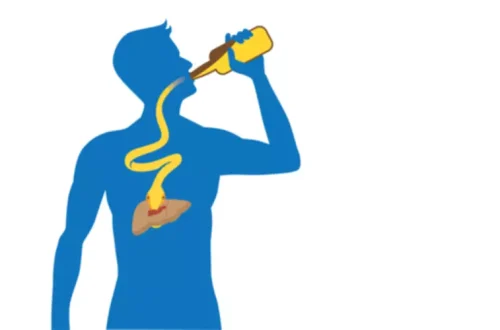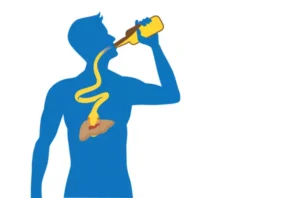The Trauma of Children of People With Addiction

That said, it’s important to recognize that behaviors resulting from this illness can have a negative impact on loved ones. Living with addiction can have lasting effects on a person, but it can also significantly affect their loved ones, particularly their children. If the child is an only child, they may feel very isolated and alone when their parents are drinking. Even if a child has siblings, they may still pull away and feel like no one understands what they are going through or cares. This can be dangerous, as depression can lead to extreme anxiety and suicidal thoughts or actions. They may be able to recommend the next steps, including referring you to a mental health professional if necessary.
- Babies whose mothers consume alcohol while pregnant can develop an array of physical and mental birth defects.
- One potential source of these stressors, most evident in AFDP item-level analyses but also found in the MLS, is the direct impact of parent impairment.
- This can lead to early acquisition and elaboration of knowledge about alcohol use, even among children as young as preschool age.
What Are the Side Effects When You Quit Drinking Alcohol?
Thus, we posit that the life domains in which COAs are particularly vulnerable to experience stressors change with age. Research shows that a child’s risk of becoming an alcoholic is greater if their alcoholic parent is depressed or suffers from other co-occurring disorders. Their risk also goes up if both parents are addicted to alcohol and other drugs, if the alcohol abuse is severe and if there is violence in the home. Children who are raised by a parent with an alcohol addiction are more likely than other children to experience emotional neglect, physical neglect and emotional and behavioral problems. Approximately 50 percent will develop an alcohol addiction later on in their own life.

Helping an Alcoholic Parent Seek Treatment
An absent parent with an AUD may not provide their child with an accurate perception of themselves, which can cause life-long issues with self-image. Children of alcoholic households, even well after they’re grown, may struggle with confidence, social comparison, positive and/or negative feedback, boundaries, self-doubt, and accepting help. A final theme present across all three studies was that COAs were more likely to endorse rare events than were non-COAs. Indeed, we found evidence that COAs tend to rate the negative life events they experience as more severe than do their counterparts, even after controlling for the greater number of life events that COAs experience.

The Effects Of Growing Up With Alcoholic Parents
For these analyses, we computed proportion scores for each participant who was assessed on at least three occasions to index the number of times each participant endorsed an item over all periods assessed. Because negative life events are complex stressors, often comprised of a set of related but discrete experiences, individual differences in severity ratings may reflect variation in the life events themselves. These variations may be evident both in differences in stressor ratings across individuals as well as within the same individual over time. Individual differences in severity ratings for stressors, however, may also reflect how individuals interpret and respond to otherwise comparable events. Notably, information processing biases related to risk for depression and hostility are elevated in COAs (Sher, 1991). These biases can serve, for example, to increase the potential for erroneous event appraisals pertaining to personal failure or the hostile intentions of others (Crick & Dodge, 1994; Krantz & Hammen, 1979).
These factors can serve as a lifeline for children, offering them the emotional support and understanding they may not receive elsewhere. From a genetic standpoint, children born to two alcoholic parents may inherit a genetic predisposition toward alcoholism from both sides of the family. This increases the likelihood that they may develop alcohol-related issues themselves. The lack of parental monitoring due to alcohol abuse can have a direct impact on the likelihood of adolescents engaging in substance abuse, as supported by studies like the one conducted by Dishion and Loeber. A 2017 study showed that an estimated 12% of youth under the age of https://ecosoberhouse.com/addiction-rehabilitation-center/ 18 lives with at least one parent that experiences alcohol use disorder (AUD).

Interpersonal Effects
- The impact of this social learning can be long-lasting, shaping the child’s attitudes towards alcohol and influencing their likelihood to engage in risky drinking behaviors as they grow older.
- That said, it’s important to recognize that behaviors resulting from this illness can have a negative impact on loved ones.
- The skin between the nose and upper lip, which is called the philtrum, may be smooth instead of depressed.
- Second, COAs are more vulnerable to relatively rare, severe negative life events.
Therapists and other mental health professionals with experience dealing with addiction can help. In a study of more than 25,000 adults, those who had a parent with AUD remembered their childhoods as “difficult” and said they struggled with “bad memories” of their parent’s alcohol misuse. Some people experience this as post-traumatic stress disorder (PTSD), like other people who had different traumatic childhood experiences. Some studies have shown that children of parents with AUD are more likely to misuse alcohol themselves in adolescence or adulthood. They may begin drinking alcohol at a younger age than other people and progress quickly to a problematic level of consumption.
Alcohol and Cialis: Risks, Side Effects & Treatment
Experiencing these behaviors from a parent can also wear down your self-worth over time. Consequently, you might become more sensitive to criticism and rejection and have a harder time standing up for yourself. What’s more, children who had to act as parents to their own parents may go on to believe it’s their responsibility to take care of others, which can lead to codependent relationships.
What Does Alcoholic Neuropathy Feel Like: Understanding the Symptoms and Impact on Daily Life
Diseases that affect both the mind and body how alcoholic parents affect their children can lead to a person acting and reacting in ways that they normally wouldn’t, or neglecting the things they care about most. Enter your phone number below to receive a free and confidential call from a treatment provider. Anxiety keeps you trapped as whenever you try to move away from the other eight traits, it flares up.

In the AHBP, college students completed the parent-SMAST and FH-RDC to determine whether parents met lifetime criteria for alcoholism. The inclusion criteria for COAs were scoring 5 or greater on the Father-SMAST and/or having a biological father diagnosed with alcoholism using the FH-RDC. Participants were counted as controls if they scored a 0 or a 1 on the F-SMAST and M-SMAST and if the FH-RDC did not yield a diagnosis of alcoholism. Selected items were previously rated in the literature as negative and then coded as occurring (1) or not (0) within the past year. In addition, these items were rated for their severity by participants on a scale ranging from -3 (very negative) to +3 (very positive). Because the focus was on college students living away from home, items emphasized those outside of the family.
Adult Children Of Alcoholics
This again stems from experiencing rejection, blame, neglect, or abuse, and a core feeling of being unlovable and flawed. Individual therapy is a great place to start, says Michelle Dubey, LCSW, chief clinical officer for Landmark Recovery. The type of therapy you pursue may depend on the issues you’re most concerned about. Your therapist can help you determine a therapy approach that best fits your unique needs and concerns. If this was the case with your parent, you may have learned to pay attention to small, subtle signs at a young age. Never entirely sure how they’d act or react, you might have found yourself constantly on high alert, ready to respond accordingly and protect yourself.